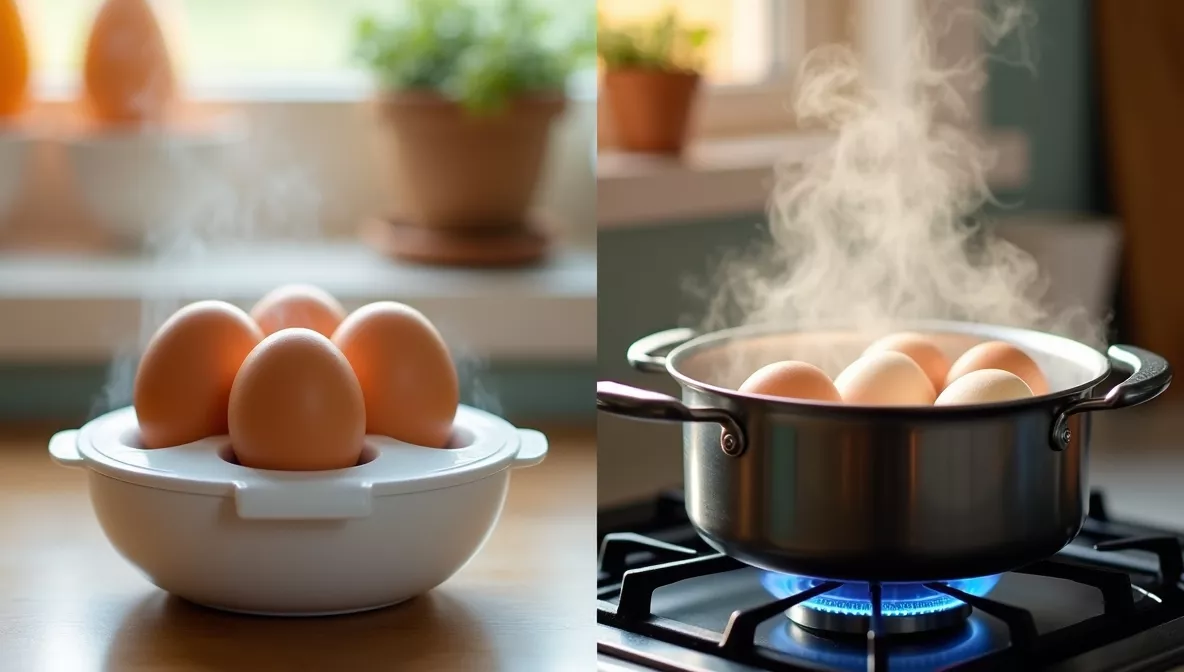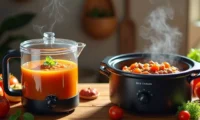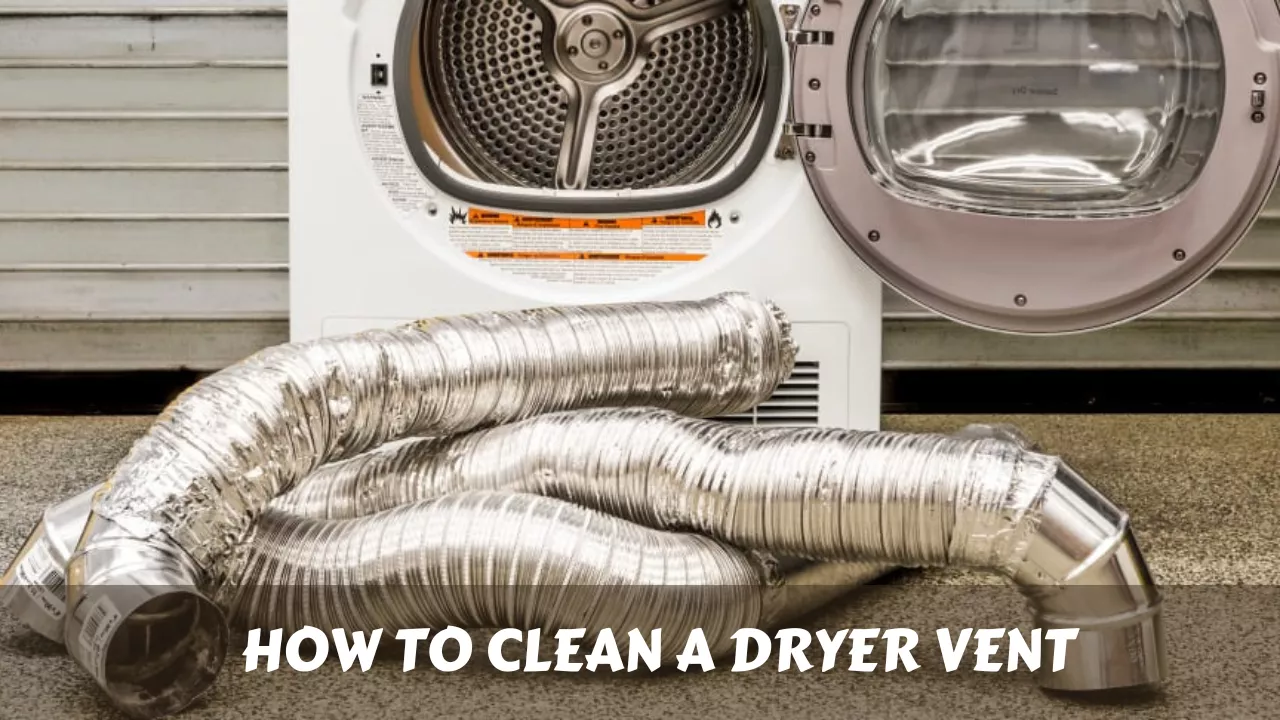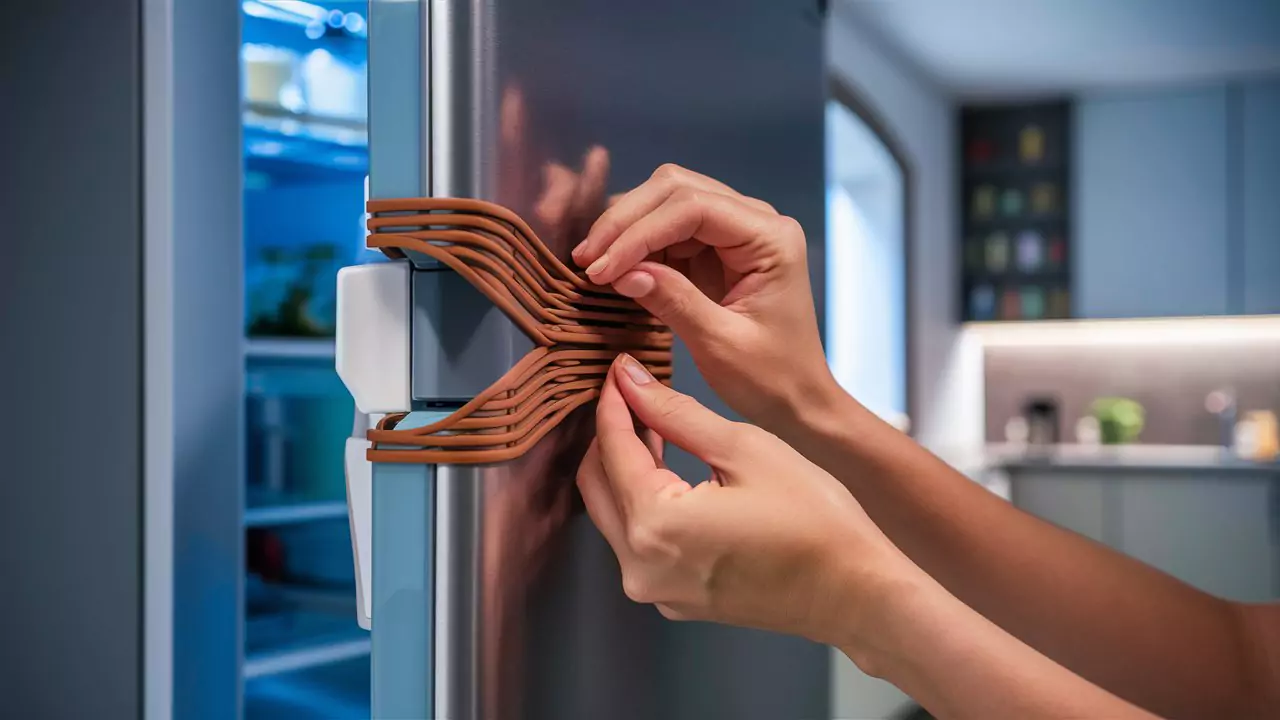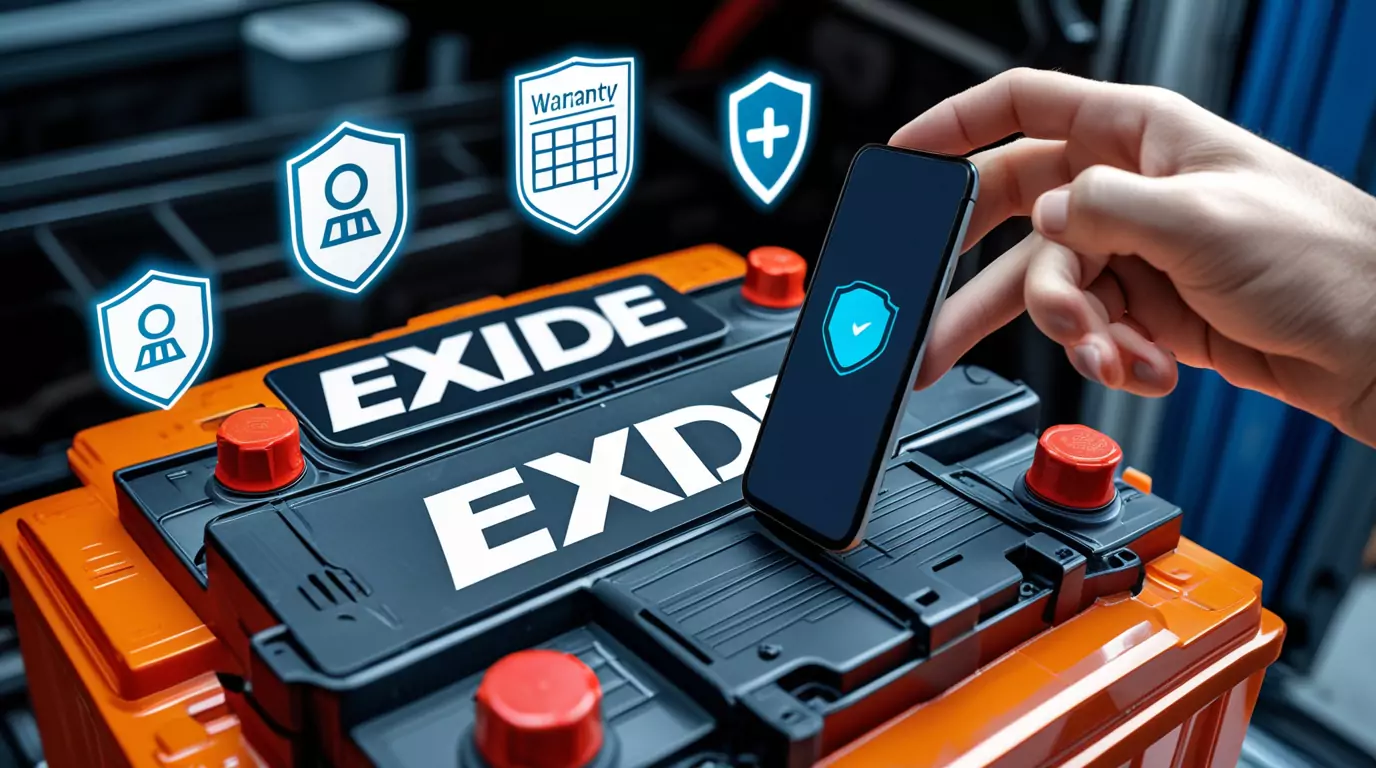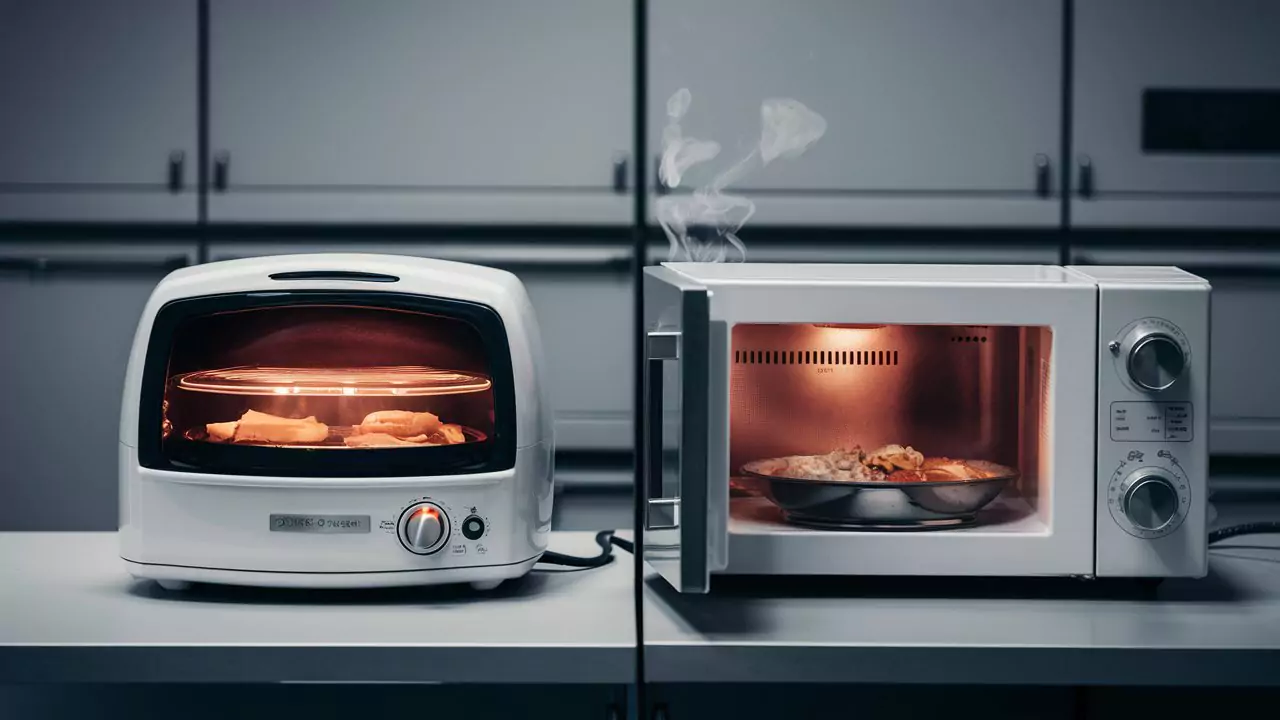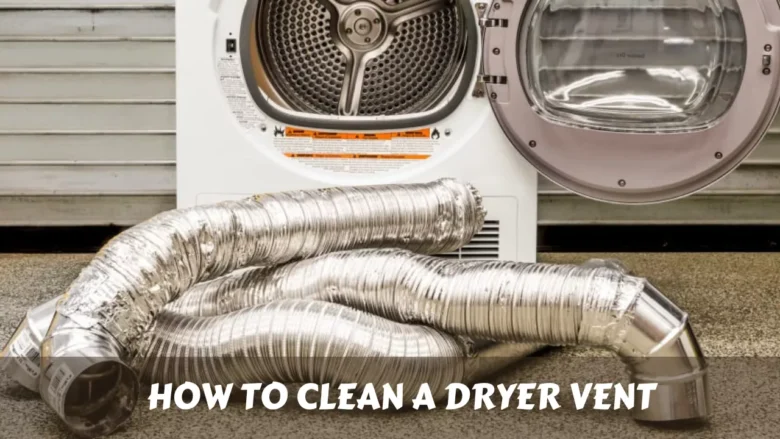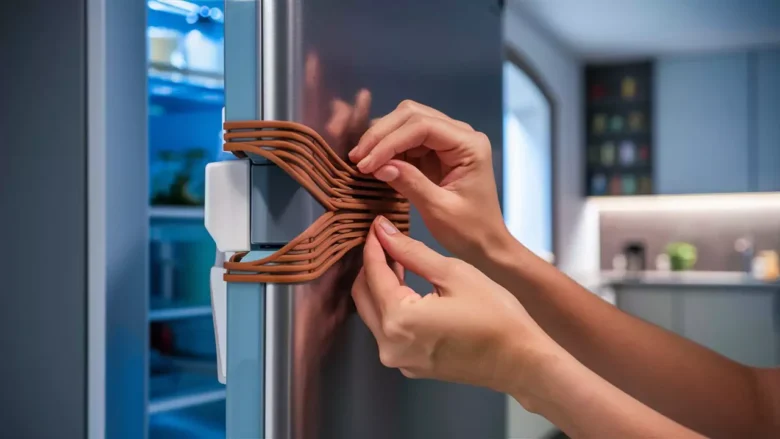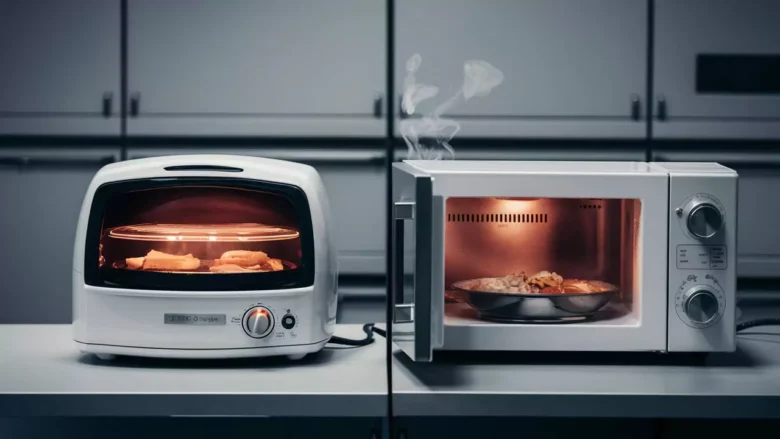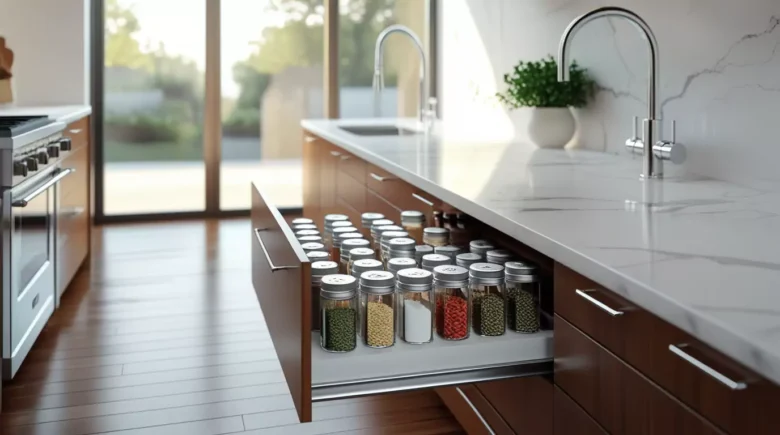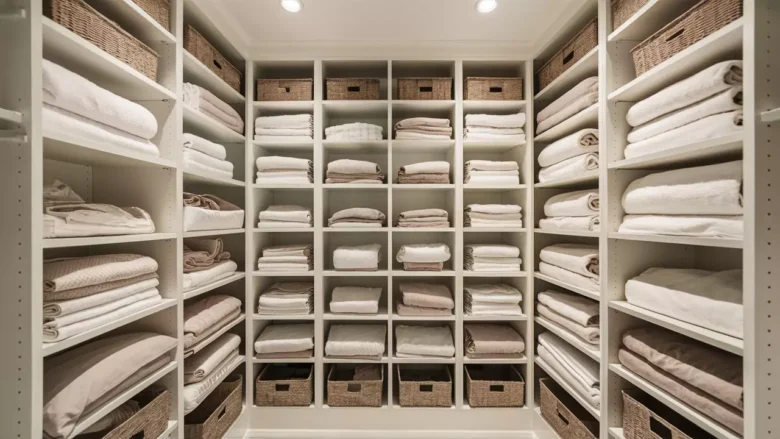Electric egg cookers automate the process with consistent results in 10-15 minutes using minimal energy, ideal for busy households. Stovetop boiling offers greater flexibility and zero equipment cost but requires active monitoring and uses more energy. Electric cookers excel at convenience and consistency, while stovetop methods work best for large batches and budget-conscious cooks who already have the necessary cookware.
- The Morning Egg Struggle
- Electric Egg Cooker vs Stovetop – Full Comparison Table
- 💖 You Might Also Like
- Electric Egg Cooker vs Stovetop – Which One Saves More Time?
- Electric Egg Cooker vs Stovetop – Which Is Cheaper?
- Do Electric Egg Cookers Make Better Eggs?
- ✨ More Stories for You
- Is a Stovetop Better for Large Families?
- How an Electric Egg Cooker Works
- How to Boil Eggs on a Stovetop Properly
- 🌟 Don't Miss These Posts
- Pros and Cons of Electric Egg Cooker
- Pros and Cons of Stovetop Eggs
- Which Method Uses Less Electricity or Gas?
- Which Option Is Healthier?
- Which One Is Easier for Meal Prep?
- How to Use an Electric Egg Cooker
- How to Boil Eggs on a Stovetop
- FAQs
- Are electric egg cookers worth it?
- Do eggs taste different in egg cooker vs stovetop?
- Is it cheaper to boil eggs on gas or use a cooker?
- Which method gives softer eggs?
- Buying Guide: Choosing Your Egg Cooking Method
- Consider an Electric Egg Cooker If:
- Stick With Stovetop If:
- Final Verdict: Electric Egg Cooker vs Stovetop
The Morning Egg Struggle
Cracked shells. Rubbery yolks. Undercooked whites. Wasted energy keeping an eye on boiling water while juggling breakfast prep. If you’ve experienced any of these frustrations, you’re not alone. Millions of home cooks face the same challenges every morning when preparing eggs.
The real question isn’t just about cooking eggs – it’s about which method actually saves you time, money, and delivers perfect eggs every single time. Whether you’re meal prepping for the week, feeding a busy family, or simply want consistent breakfast results, understanding the differences between electric egg cookers and traditional stovetop boiling can transform your kitchen routine.
Let’s break down exactly which method wins for speed, cost, taste, and convenience.
Electric Egg Cooker vs Stovetop – Full Comparison Table
| Factor | Electric Egg Cooker | Stovetop |
|---|---|---|
| Time | 10-15 minutes (hands-free) | 12-18 minutes (requires monitoring) |
| Cost | $15-$40 upfront | No cost (use existing pots) |
| Energy Use | 300-400 watts | 1,200-2,500 watts (gas/electric) |
| Ease of Use | Set and forget | Requires attention |
| Cleanup | Wipe tray, rinse | Wash pot, manage water |
| Consistency | Highly consistent | Variable results |
| Taste | Identical to stovetop | Traditional flavor |
| Capacity | 6-12 eggs typical | Unlimited (pot size) |
| Safety | Auto shut-off | Manual monitoring needed |
| Ideal User | Busy individuals, meal preppers | Large families, budget-focused |
💖 You Might Also Like
Electric Egg Cooker vs Stovetop – Which One Saves More Time?
Electric egg cookers save approximately 5-10 minutes per cooking session by eliminating active monitoring time. You simply add water, place eggs, and walk away. The device alerts you when cooking finishes, allowing you to multitask without worrying about timing or heat adjustments.
In my testing, the electric egg cooker consistently produced soft-boiled eggs with zero cracks while I prepared other breakfast items. The hands-free operation meant I could shower, pack lunches, or answer emails without interruption.
Stovetop boiling requires you to bring water to a boil, reduce heat, set timers, and stay nearby to prevent overcooking. While the actual cooking time is similar, the mental energy and physical presence needed makes stovetop methods less efficient for busy mornings.
For meal preppers: Electric cookers shine when preparing a week’s worth of eggs. Set it once, complete other tasks, and collect perfectly cooked eggs without babysitting a pot.
Want consistent eggs every morning? Explore the latest electric egg cookers here: Electric Egg Cooker
Electric Egg Cooker vs Stovetop – Which Is Cheaper?
Short-term, stovetop costs nothing if you already own pots. Long-term, electric egg cookers cost less to operate due to lower energy consumption. A typical electric cooker uses 300-400 watts for 15 minutes, while electric stovetops use 1,200-2,500 watts and gas burners consume equivalent energy.
Over one year of daily use, an electric egg cooker costs approximately $3-5 in electricity, compared to $15-25 for stovetop methods. The upfront investment of $15-40 for an electric cooker pays for itself within 6-12 months for regular users.
Budget breakdown:
- Electric egg cooker: $20 device + $5 annual energy = $25 first year
- Stovetop (electric): $0 device + $20 annual energy = $20 first year
- Stovetop (gas): $0 device + $15 annual energy = $15 first year
After year one, the electric cooker becomes more economical due to efficiency gains and reduced utility costs.
Prefer the traditional stovetop method? Compare stovetop egg pans here: Stovetop Egg
Do Electric Egg Cookers Make Better Eggs?
Electric egg cookers produce more consistent results through precise steam control and automatic timing. The eggs cook evenly without risk of cracking from temperature shock or vigorous boiling. However, taste remains identical between methods when cooked to the same doneness level.
The advantage lies in reliability, not flavor. An electric cooker eliminates variables like heat fluctuation, water level, and timing errors. You’ll get the same perfect soft-boiled egg on Monday and Friday without adjusting technique.
On the stovetop, I needed to monitor heat and timing closely to avoid overcooking. Results varied based on pot size, water amount, and whether I remembered to set a timer. Experienced cooks achieve excellent stovetop results, but beginners often struggle with consistency.
✨ More Stories for You
Is a Stovetop Better for Large Families?
Stovetop methods excel when cooking more than a dozen eggs simultaneously. Large pots accommodate 18-24 eggs easily, while most electric cookers max out at 6-12 eggs. For households preparing bulk quantities, stovetop boiling remains the practical choice.
However, consider cooking in batches with an electric cooker. Two 12-egg batches take 30 minutes hands-free versus 20 minutes of active stovetop monitoring for 24 eggs. The time trade-off depends on whether you value total cooking time or active involvement.
Large family tip: Use stovetop for holiday meal prep or weekly batch cooking. Use an electric cooker for daily breakfast needs.
How an Electric Egg Cooker Works
Electric egg cookers use steam heating rather than water immersion. A heating plate below the egg tray boils a measured amount of water, creating steam that circulates around the eggs. This gentle, consistent heat cooks eggs evenly from all sides.
Most models include:
- Measuring cup with doneness markers
- Egg tray with capacity indicators
- Transparent lid for monitoring
- Auto shut-off with audible alert
- Pin for piercing shells (prevents cracking)
The precision comes from water measurement. More water equals longer cooking time and firmer eggs. Less water produces softer eggs. This eliminates guesswork once you understand your preferences.
How to Boil Eggs on a Stovetop Properly
Stovetop boiling requires attention to detail but works with equipment you already own. The traditional method involves placing eggs in cold water, bringing to a boil, then reducing heat for controlled cooking.
Common mistakes to avoid:
- Starting with boiling water (causes cracking)
- Overcrowding the pot (uneven cooking)
- Skipping the ice bath (difficult peeling)
- Forgetting to set a timer (overcooking)
- Using high heat throughout (rubbery texture)
Mastering stovetop technique takes practice. Variables like altitude, egg size, and pot material all affect results. Experienced cooks develop intuition, but beginners often face frustration.
🌟 Don't Miss These Posts
Pros and Cons of Electric Egg Cooker
Pros:
- Hands-free operation with auto shut-off
- Consistent results every time
- Lower energy consumption than stovetop
- Prevents cracking through steam cooking
- Audible alert when complete
- Compact storage footprint
- Multi-function models handle poached and scrambled eggs
Cons:
- Upfront cost of $15-40
- Limited capacity (typically 6-12 eggs)
- Requires counter or storage space
- Another appliance to maintain
- Dependent on electricity
- Not ideal for very large batches
Looking for a cooker that handles poached eggs too? Check these electric options: Electric Egg Cooker
Pros and Cons of Stovetop Eggs
Pros:
- No equipment purchase necessary
- Unlimited capacity based on pot size
- Works during power outages (gas stoves)
- Familiar technique for experienced cooks
- No additional appliances to store
- Versatile pot usage for other cooking
Cons:
- Requires active monitoring and timing
- Higher energy consumption
- Inconsistent results for beginners
- Risk of cracking from temperature shock
- Easy to overcook or undercook
- Ties up stovetop burner
- More water waste and cleanup
Which Method Uses Less Electricity or Gas?
Electric egg cookers use 75-85% less energy than stovetop methods. A typical cooker draws 350 watts for 12 minutes (0.07 kWh), while electric stovetops use 1,500 watts for 15 minutes (0.375 kWh). Gas stoves consume equivalent BTUs.
Annual energy comparison (daily use):
- Electric cooker: 25.5 kWh per year
- Electric stovetop: 137 kWh per year
- Gas stovetop: 1,460 cubic feet per year
The efficiency comes from targeted heating. Electric cookers heat only the water needed for steam, while stovetops heat large pots of water plus the surrounding air. This efficiency translates directly to lower utility bills.
Which Option Is Healthier?
Both methods produce equally healthy eggs when cooked properly. The cooking technique doesn’t affect nutritional content—only the final doneness level matters. Soft-boiled eggs retain slightly more heat-sensitive nutrients than hard-boiled, regardless of equipment used.
The health advantage of electric cookers is consistency. Perfectly cooked eggs are easier to digest than overcooked rubbery eggs with green-tinged yolks. Stovetop methods risk overcooking more often, particularly for novice cooks.
Neither method requires added fats or oils, making both suitable for health-conscious diets. The choice between them won’t impact the nutritional value of your breakfast.
Which One Is Easier for Meal Prep?
Electric egg cookers simplify meal prep through set-and-forget operation. Prepare a dozen eggs for the week in 15 minutes while organizing containers or preparing other ingredients. The consistent results ensure uniform doneness across all eggs.
For meal preppers who cook eggs multiple times weekly, the time savings compound quickly. Fifteen minutes of hands-free cooking twice per week saves over an hour monthly compared to active stovetop monitoring.
Meal prep advantage: Cook Sunday batch while preparing vegetables, portioning proteins, or organizing your week. The multitasking capability makes electric cookers invaluable for efficient kitchen workflows.
How to Use an Electric Egg Cooker
- Fill the measuring cup to your desired doneness level
- Pour water into the heating plate
- Place eggs in the tray (pierce thick end if included)
- Cover with lid
- Press start button
- Walk away and wait for completion beep
- Remove eggs and place in ice bath
- Peel when cool
The entire process takes under one minute of active time. No watching, stirring, or adjusting heat. The built-in timer and automatic shut-off handle everything.
How to Boil Eggs on a Stovetop
- Place eggs in pot in single layer
- Cover with cold water (one inch above eggs)
- Bring to rolling boil over high heat
- Remove from heat and cover
- Let sit 9-12 minutes (depends on doneness)
- Transfer to ice bath immediately
- Cool for 5 minutes before peeling
Success requires precise timing and temperature control. Set multiple timers and stay within earshot. Forgetting the ice bath results in overcooked eggs with stubborn shells.
FAQs
Are electric egg cookers worth it?
Electric egg cookers are worth buying for anyone who cooks eggs three or more times weekly. The consistent results, energy savings, and hands-free convenience offset the modest upfront cost within months. Occasional egg eaters can stick with stovetop methods without issue.
Do eggs taste different in egg cooker vs stovetop?
Eggs taste identical when cooked to the same doneness level. The cooking method doesn’t affect flavor, only texture based on final temperature. Steam cooking in an electric cooker produces the same taste as water boiling on a stovetop.
Is it cheaper to boil eggs on gas or use a cooker?
Electric egg cookers cost less to operate than both gas and electric stovetops. Annual energy costs run $3-5 for electric cookers versus $15-25 for stovetop methods. The initial purchase price pays for itself through efficiency gains within one year of regular use.
Which method gives softer eggs?
Both methods produce soft-boiled eggs equally well when timed correctly. Electric cookers offer more consistent soft-boiled results because water measurement controls cooking time precisely. Stovetop methods require careful timing but achieve identical softness when executed properly by experienced cooks.
Buying Guide: Choosing Your Egg Cooking Method
Consider an Electric Egg Cooker If:
Budget: You can invest $20-40 upfront for long-term savings
Capacity: You cook 6-12 eggs at a time
Speed: You value hands-free multitasking during cooking
Auto shut-off: You want safety features and alerts
Energy use: You prioritize lower utility bills
Ready to upgrade your breakfast routine? Pick the method that suits your lifestyle: Electric Egg Cooker
Stick With Stovetop If:
Budget: You prefer zero upfront costs
Capacity: You regularly cook 18+ eggs simultaneously
Speed: You don’t mind active monitoring
Equipment: You want to avoid additional appliances
Flexibility: You need equipment that serves multiple purposes
Browse traditional stovetop options: Stovetop Egg
Final Verdict: Electric Egg Cooker vs Stovetop
Choose an electric egg cooker if you cook eggs regularly, value consistency over flexibility, want to reduce energy costs, and appreciate hands-free convenience. Busy professionals, meal preppers, and families with hectic mornings benefit most from automated egg cooking.
Choose stovetop boiling if you cook eggs occasionally, need to prepare very large batches, want zero equipment investment, or prefer traditional cooking methods. Large families, budget-conscious households, and experienced cooks who enjoy hands-on cooking should stick with familiar stovetop techniques.
Overall winner for time savings: Electric egg cooker (hands-free operation)
Overall winner for cost: Tie (stovetop wins short-term, electric wins long-term)
Overall winner for consistency: Electric egg cooker (eliminates variables)
Overall winner for flexibility: Stovetop (unlimited capacity)
The best choice depends on your specific cooking habits and priorities. Both methods produce delicious eggs—the difference lies in convenience, energy efficiency, and batch size requirements.


